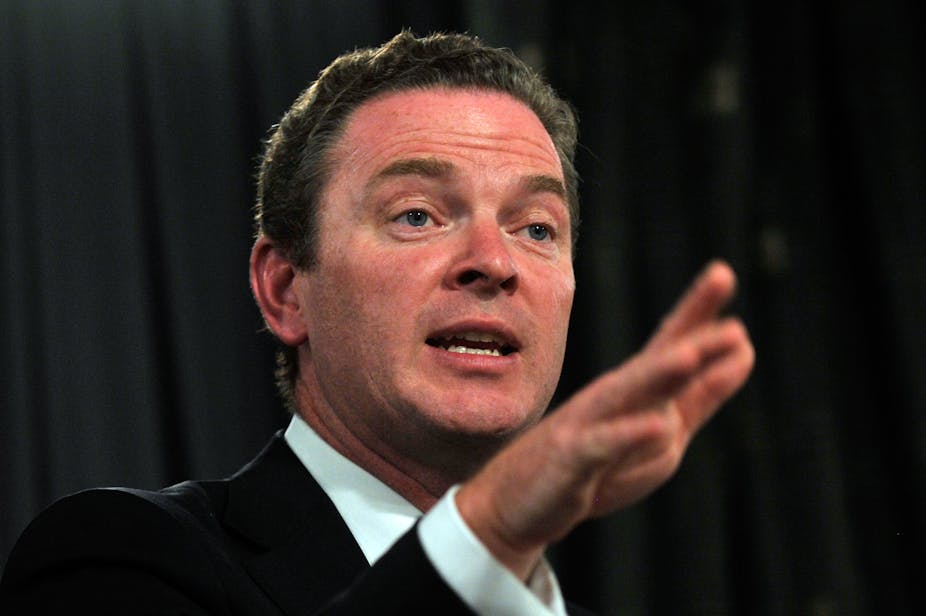Government policy should encourage some universities to focus on research and others on teaching, enabling institutions to specialise in certain areas, Australia’s shadow education minister, Christopher Pyne said today.
Mr Pyne, who would likely be the country’s next education minister if the Coalition won this year’s federal election, made the comments in a wide ranging speech delivered at Monash University this morning.
Mr Pyne said there was a view within the higher education sector that, when it comes to research and teaching, “you can’t have one without the other.”
“Nevertheless, I believe there would be real benefits if government policy encouraged some universities to maximise their opportunities for research and for others to focus more on teaching,” he said, adding that Australian universities had fallen in international rankings in the last six years and failed to improve.
Universities should be allowed to focus on what they are good at, said Mr Pyne.
“If that means that some universities want to focus significantly more on teaching, then they should confidently do so, he said.
"Government policy should enable specialisation, not discourage it.”
Academic red tape
Mr Pyne also proposed reducing the amount of time academics spend on grant applications process by examining “the feasibility of extending a proportion of research grants from three to five years.”
“We could also reduce the amount of time wasted applying for grants by introducing a preliminary Expression of Interest phase into the grants process. Of course, the grants process should be open to everyone, and nobody can blame any researcher for seeking out funding for the project that ignites their passion. But we could save a lot of time, energy, and emotional investment by only requiring those who are genuinely in with a shot to undertake a full grant application,” he said.
Research and teaching
Mr Andrew Norton, Higher Education Program Director at the Grattan Institute, welcomed the idea of having more institutions specialise in teaching.
“The teaching-research relationship that is built into the legal definition of a university and into permanent academic employment contracts is not supported by our funding system. Nor should it be – there is no reason to think that the disciplines where we need the most students are also the disciplines where we need the most research,” he said.
“However, untangling the teaching-research relationship within universities is very difficult. We need to encourage non-university teaching-only higher education providers, such as the TAFEs offering degrees and the private higher education providers. The easiest way to do this is to extend the demand-driven system to all higher education providers.”
Professor Simon Marginson, from the University of Melbourne’s Centre for the Study of Higher Education, said there was not enough detail in Mr Pyne’s speech to indicate the Coalition’s policy intentions.
“He connects to the widespread discontent with Labor’s research funding cuts, but without making a clear cut commitment to restore earlier undertakings or to apply new initiatives,” said Professor Marginson.
“There is no solution in relation to the problem, correctly identified, of a shortage of the venture capital needed to to sustain industry innovation.”
Professor Marginson said Mr Pyne’s comments on policy that encouraged universities to focus on teaching or research “suggests a plan for system restructure to enable a greater element of research concentration, or a new mission-driven division of Labor or formal stratification between institutions, but nothing more is provided.”
However, Professor James Arvanitakis, Lecturer in Cultural and Social Analysis at University of Western Sydney, described Mr Pyne’s suggestion that universities should focus on either teaching or research as “an incredibly bad idea.”
“It will invariably set up a tiered university sector where some unis get all the money and others miss out. It sets up a false binary between research and teaching. The best research is done in the classroom and involves students,” said Professor Arvanitakis, who won the 2012 Prime Minister’s University Teacher of the Year Award.
“If anything, they should be going the opposite way and encouraging a better alignment between research and teaching.”
Professor Arvanitakis also called for policy that encouraged universities to have promotion criteria that acknowledged both teaching and research.
“The thing about teaching we often forget is we don’t just teach the students in the classroom. When the students go home and talk to their family, those lessons permeates through the community. I have had parents of students email me after their kid has been through my class to say they are thinking of coming to university.”
Government policy has been “biased for far too long toward specialising in research,” Professor Arvanitakis said.
“That ends up further disassociating academics from communities and research focused positions and institutions risk a further division between the academics and the community.”

